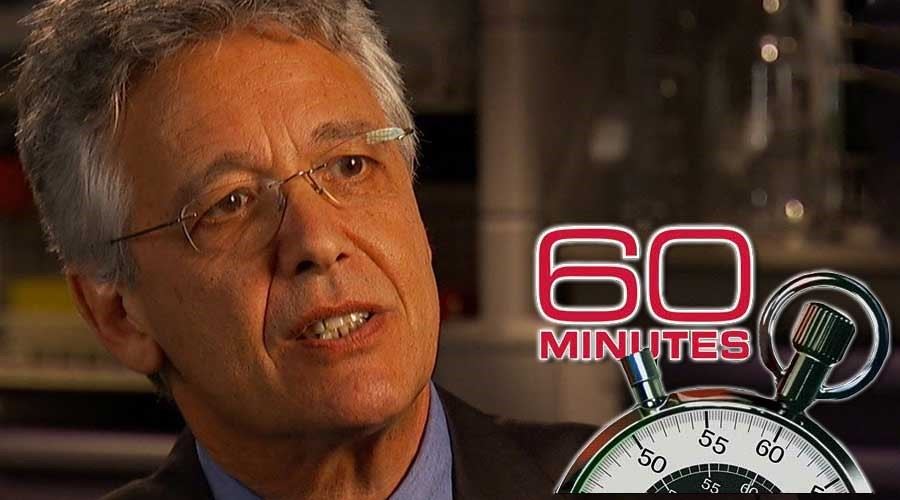
Cymbalta® Withdrawal Help
We are no longer accepting new Cymbalta withdrawal cases.
Withdrawing from Cymbalta can cause severe, long-term adverse effects. It is important to seek Cymbalta withdrawal help when coming off of an antidepressant such as this. An estimated 44% to 78% of people who stop taking Cymbalta will suffer withdrawal reactions, and of those, 9.6% to 17.2% will suffer severe withdrawal symptoms, according to an Eli Lilly study.
This web page contains links to websites owned and operated by third parties. This information is solely for informational purposes. IT IS NOT INTENDED TO PROVIDE MEDICAL ADVICE. Baum Hedlund does not take responsibility for any possible consequences from any treatment, procedure, exercise, dietary modification, action or application of medication which results from reading or following the information contained in this information. The publication of this information does not constitute the practice of medicine, and this information does not replace the advice of your physician or other health care provider. Before undertaking any course of treatment, the reader must seek the advice of their physician or other health care provider.
Cymbalta Withdrawal Help: Online Resources and Articles About Antidepressant Withdrawal
- Inner Compass Initiative provides information, resources, tools, and connecting platforms to facilitate more informed choices regarding all things “mental health” and to support individuals and groups around the world who wish to leave, bypass, or build community beyond the mental health system.
- The Withdrawal Project-TWP Connect is a free online platform created by and for people who are thinking about, in the process of, or have past experiences with partially reducing or fully coming off psychiatric drugs.
- Harm Reduction Guide to Coming Off Psychiatric Drugs and Withdrawal
- Coming Off Psychiatric Medication, “Selective Serotonin Re-uptake Inhibitors”
- Drug Informer, “Duloxetine Hydrochloride”
- Coming Off Psych Drugs (Documentary)
- PsychCentral, “6 Ways to Prepare for Withdrawal from an Antidepressant”
- Rxisk.org: Cymbalta Information
- Davidhealy.org, “RxISK Stories: Withdrawal from antidepressants – V’s story”
- David Fox, “My Story and My Fight Against Antidepressants,” October 12, 2013
- QUARTER WATCH REPORT, “Withdrawal Symptoms and Duloxetine (CYMBALTA), Oct. 3, 2012
- Jill Littrell, Ph.D., “Response to 60 Minutes,” February 22, 2012
- Peter Breggin, M.D., “Today’s Greatest Mental Health Need:
- Psychiatric Drug Withdrawal Programs,” October 18, 2012
- The People’s Pharmacy, “Duloxetine (Cymbalta) Side Effects & Withdrawal”
- WebMD’s Big Lie
- Worst Pills, Best Pills – A review of duloxetine (Cymbalta) – Dangerous side effects and warnings
Consider the Source (ghostwriting medical literature)
Bosch X, Esfandiari B, McHenry L (2012), “Challenging Medical Ghostwriting in US Courts,” PLOS Med 9(1): e1001163.
McHenry, “Of Sophists and Spin-Doctors: Industry-Sponsored Ghostwriting and the Crisis of Academic Medicine,” MSM (Jan-Dec; 2010)
How Effective are Antidepressants?
60 Minutes, “Treating Depression: Is There a Placebo Effect?” February 19, 2012.

On Sunday, February 18, 2012m Irving Kirsch, and associate director of the Placebo Studies Program at Harvard medical School, who as been studying placebos for 36 years, told 60 Minutes that the difference between the perceived benefit of a placebo compared with the benefit of an antidepressant is minimal for most people.
Erick H. Turner et al., “Selective Publication of Antidepressant Trials and Its Influence on Apparent Efficacy,” The New England Journal of Medicine (2008); 358:252-260.
Irving Kirsch et al., “Initial Severity and Antidepressant Benefits: A Meta-Analysis of Data Submitted to the Food and Drug Administration,” PLOS Medicine, February 2008, Volume 5, Issue 2, e45
H. Edmond Pigott, “STAR*D: A Tale and Trail of Bias,” Ethical Human Psychology and Psychiatry, Vol. 13, No. 1, 2011.
Begley, “The Depressing News About Antidepressants,” Newsweek Magazine, January 28, 2010
The Chemical Imbalance Theory
Philip Hickey, Ph.D., “Psychiatry Did Promote the Chemical Imbalance Theory”
Todd B. Kashdan, Ph.D., “What Causes Depression? Myths About Chemical Imbalances,” March 13, 2014
Blease, “The Duty to be Well-Informed: The Case of Depression,” J. Med. Ethics, April 26, 2013
Marcia Angell, M.D., (former Editor in Chief of the New England Journal of Medicine) “The Epidemic of Mental Illness: Why?” New York Review of Books, June 23, 2011
Jonathan Leo, Ph.D., Jeffery Lacasse, Ph.D., “Psychiatry’s Grand Confession,” January 23, 2012
Cymbalta Withdrawal Legal Documents

 Here, Dr. Glenmullen states that the risk rates set forth in Lilly’s own analysis are only the tip of the iceberg. The manner in which Lilly evaluated withdrawal in its own studies of Cymbalta would not have captured all of the patients experiencing withdrawal. In fact, based on Cymbalta’s comparatively short half-life, the withdrawal rate is more likely to be in the range of 66% to 78%.
Here, Dr. Glenmullen states that the risk rates set forth in Lilly’s own analysis are only the tip of the iceberg. The manner in which Lilly evaluated withdrawal in its own studies of Cymbalta would not have captured all of the patients experiencing withdrawal. In fact, based on Cymbalta’s comparatively short half-life, the withdrawal rate is more likely to be in the range of 66% to 78%.
Cymbalta withdrawal lawsuits summary: Personal injury lawsuits filed across the US, claim Cymbalta manufacturer, Eli Lilly and Company, misled them about the antidepressant’s propensity to induce withdrawal side effects and that, when stopping the medication, they suffered withdrawal symptoms including electric-shock like sensations in their body and brain (also known as “brain zaps”), dizziness, nausea, vomiting, vertigo, excessive sweating, insomnia, nightmares, and diarrhea.
Cymbalta Withdrawal Help: Facebook Pages
Cymbalta Withdrawal Studies
- David G. Perahia et al., “Symptoms following abrupt discontinuation of duloxetine treatment in patients with major depressive disorder,” Journal of Affective Disorders, 2005 Jan 1;89:207-212.
- Glen I. Spielmans, “Duloxetine does not relieve painful physical symptoms in depression: a meta-analysis,” Psychotherapy and Psychosomatics, 2008; 77(1): 12-16.
- Cymbalta Clinical Trials
Report Your Cymbalta Withdrawal Symptoms

 Report Cymbalta Withdrawal Side Effects to RxISK.org
Report Cymbalta Withdrawal Side Effects to RxISK.org


-
 The Antidepressant Solution A Step-by-Step Guide to Safely Overcoming Antidepressant Withdrawal, Dependence and Addiction
The Antidepressant Solution A Step-by-Step Guide to Safely Overcoming Antidepressant Withdrawal, Dependence and Addiction -
 Psychiatric Drug Withdrawal A Guide for Prescribers, Therapists, Patients and their Families
Psychiatric Drug Withdrawal A Guide for Prescribers, Therapists, Patients and their Families -
 Prozac Backlash Overcoming the Dangers of Prozac, Zoloft, Paxil, and Other Antidepressants with Safe, Effective Alternatives
Prozac Backlash Overcoming the Dangers of Prozac, Zoloft, Paxil, and Other Antidepressants with Safe, Effective Alternatives -
 The Emperor’s New Drugs Exploding the Antidepressant Myth
The Emperor’s New Drugs Exploding the Antidepressant Myth -
 The Myth of the Chemical Cure A Critique of Psychiatric Drug Treatment
The Myth of the Chemical Cure A Critique of Psychiatric Drug Treatment -
 Blaming the Brain The Truth about Drugs and Mental Health
Blaming the Brain The Truth about Drugs and Mental Health -
 Pharmageddon
Pharmageddon -
 Anatomy of an Epidemic Magic Bullets, Psychiatric Drugs, and the Astonishing Rise of Mental Illness in America
Anatomy of an Epidemic Magic Bullets, Psychiatric Drugs, and the Astonishing Rise of Mental Illness in America
Our Case Results

-
$265 Million Settlement Fatal Train Crash
In 2016, Wisner Baum attorney Timothy A. Loranger and six other attorneys in the Plaintiffs’ Management Committee were able to secure a $265 million settlement for victims of the 2015 Amtrak 188 derailment in Philadelphia, one of the largest in the U.S. for 2016.
-
$14 Million Settlement A Major US Plane Crash
Wisner Baum obtained a $14 million settlement for the death of a passenger in a major US plane crash.
-
$12 Million Settlement Helicopter Crash
Wisner Baum secured a $12 million settlement for a passenger who was injured in a helicopter crash.
-
$10 Million Settlement A Major Foreign Plane Crash
Wisner Baum obtained a $10 million settlement for the death of a passenger in a major foreign plane crash.
-
$2.0 Billion Verdict Personal Injury
In May of 2019, the jury in the case of Pilliod et al. v, Monsanto Company ordered the agrochemical giant to pay $2.055 billion in damages to the plaintiffs, Alva and Alberta Pilliod, a Bay Area couple in their 70s.
-
$80 Million Verdict Personal Injury
Wisner Baum attorneys served on the trial team in the case of Hardeman v. Monsanto Company, which resulted in an $80 million jury verdict for the plaintiff, Edwin Hardeman.

Client-Focused Representation
REVIEWS & TESTIMONIALS
We believe our track record speaks for itself. But you don’t have to take our word for it. See what our clients have to say about working with us.
-
"I Can’t Imagine a Better Law Firm"
Multiple lawyers recommended Wisner Baum to me and I have been consistently impressed with the quality of their work.
- Best Law Firms Survey -
"They Are About Changing the Systems..."
Wisner Baum are not only amazing attorneys but more importantly, they are activists. They are about changing the systems which got us into trouble in the first place. They understand their role in the process of making change.
- Kim Witczak -
"Top Legal Minds in the Country"
The Wisner Baum firm has some of the top legal minds in the country; they are driven, determined, trustworthy, ethical and passionate.
- From Best Lawyers® Best Law Firms













